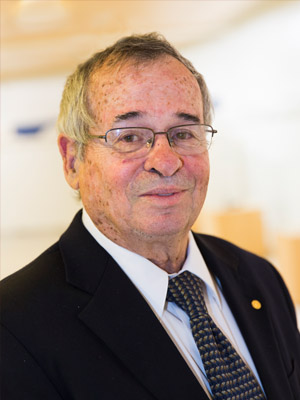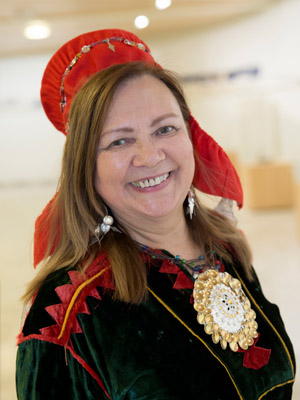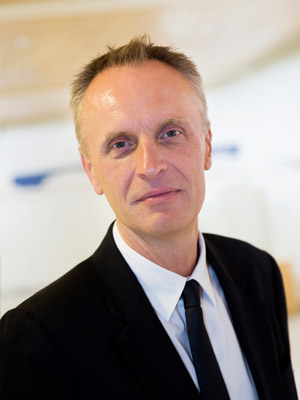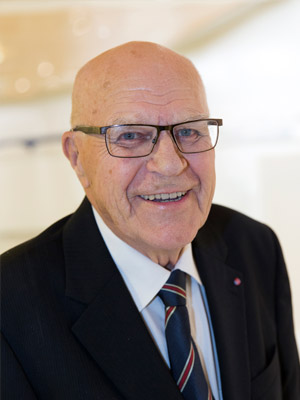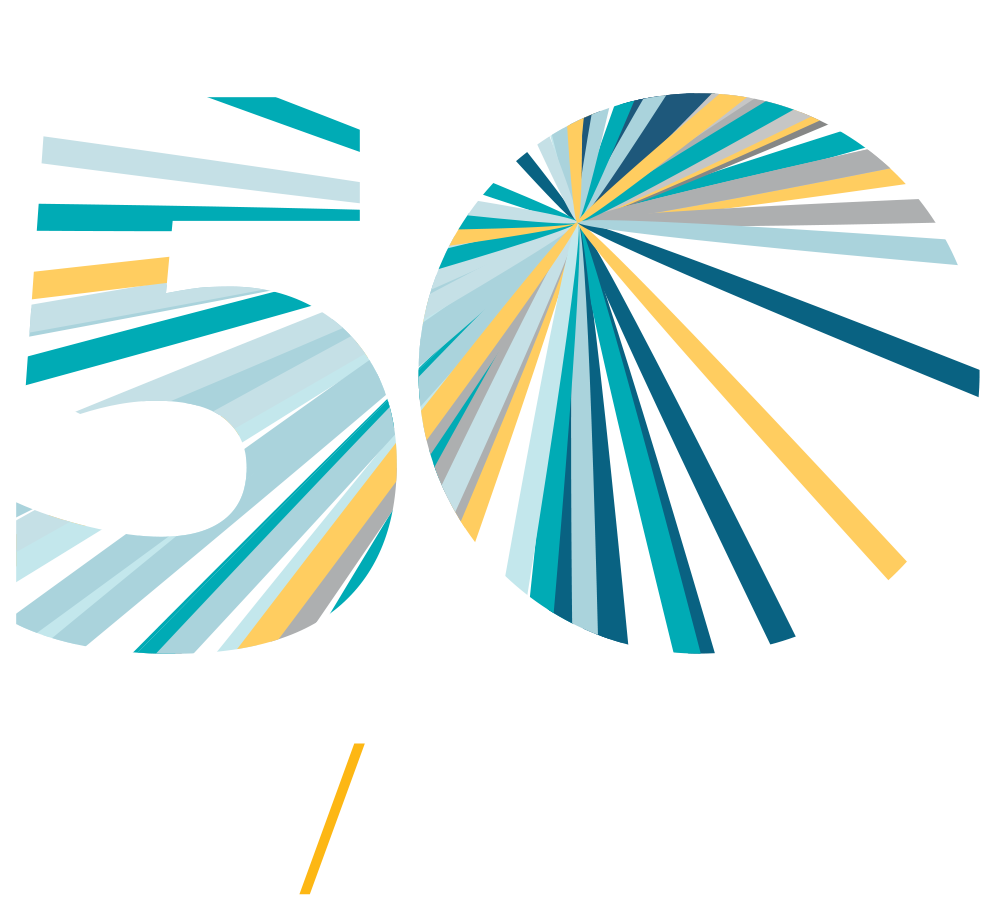Honorary Professors
The university board may appoint honorary professors (doctor honoris causa) on their own initiative or based on suggestions from a scientific community. The title is awarded in recognition of considerable scientific contribution, outstanding work for the benefit of science, or qualities or contributions of particular significance to the university. To date, the university board has appointed 39 honorary doctors.
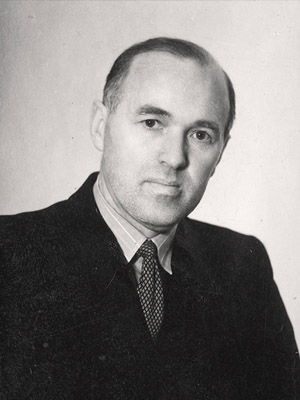
Kjell Bondevik was the first to be appointed honorary doctor by UiT in recognition of his involvement in the establishment of the University of Tromsø, the Arctic University of Norway. Bondevik (Christian Democratic Party, KrF) was minister of church affairs and education in the conservative four-party coalition government from 1965-1971. He was a strong advocate of a decentralized university program. He drew attention in December 1966 when he placed the new medical program in Tromsø rather than Trondheim. He had to pick his arguments carefully to receive the government’s support for this decision.
When Bondevik served as minister of church affairs and education, universities were built in Tromsø and Trondheim. The Government implemented several new reforms to the education sector, including the subsidization of private schools, the establishment of 9 years of mandatory schooling, the granting of scholarship to students living independently and the establishment of new regional colleges.
Kjell Bondevik majored in folklore and philology (German and Norwegian) and minored in pedagogy. When he was young, he worked as a teacher and during the Second World War he was one of the many Norwegian teachers who was sent to Finnmark by the German occupiers.
(Sources: Store norske leksikon, Fulsås, N. (1993), the University of Tromsø 25 years, the University of Tromsø)

Peter F. Hjort was a medical doctor, professor, and a public health information officer. Yet first and foremost, he is remembered as UiT’s first rector (1972-73). He had a central role in the creation of UiT’s medical program from 1961-73 and was chairman of UiT’s interim board. His name will always be associated with the establishment of the university and he was among the first to be awarded an honorary doctorate.
It was no simple task to develop a new medical program in Northern Norway and many believed it was a futile project. The Southern Norwegians were harsh in their criticism; “a university program cannot possibly be established with the same objective as a herring oil factory.” There was also local unwillingness; neither of the hospitals in Harstad or Bodø showed great enthusiasm for the project.
Hjort served as rector for a very short period because of a conflict with the students, but he continued to work as a professor at UiT until 2001. In honor of the university’s first rector, UiT hosts an annual seminar in his name, the Peter F. Hjort seminar, where the collaboration between academic fields and the private and public sectors is strengthened and developed.
(Sources: Store norske leksikon, Fulsås, N. (1993), the University of Tromsø 25 years, the University of Tromsø)
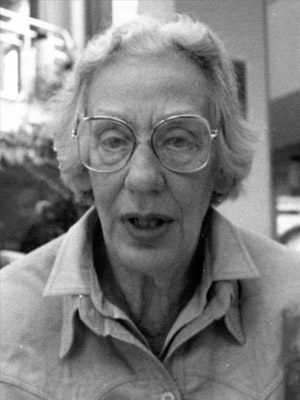
Amelia (Amy) van Marken was a Dutch literary scholar and translator with great knowledge of Scandinavian literature. She organized studies of Sami and Northern Norwegian literature even before UiT was established. Her long-lasting, strong interest in Northern Norway, the North Calotte and the Arctic helped raise international awareness around this region’s challenges related to scientific research. As a researcher, lecturer and producer of popular science, she was a pioneer in many of UiT’s academic fields. On these grounds, she received an honorary doctorate on 1 September 1987.
“Those were glorious days and I remember them with great joy. I am very impressed by the university’s current position within the region and by its specific strategy for the future,” wrote Amy van Marken in her letter of gratitude to Rector Narve Bjørgo, dated 20 September 1987.
In 1930, Amy van Marken commenced her studies in Scandinavian literature at the University of Amsterdam and she completed her bachelor degree six years later. When the Second World War broke out she was forced to take a break in her studies, but she continued to lecture at the Adult Education Association until her courses were banned. She then proceeded to host secret literature courses in her own home, with Danish and Norwegian resistance literature as part of the curriculum. In 1956, she assumed a permanent position as lecturer of Scandinavian languages at the University of Groningen. In 1970, she completed her Ph.D. with a dissertation on the female characters in Knut Hamsun’s novels. These novels nourished her interest for the northern regions. The most important expression of her Arctic engagement was her contribution towards the Arctic Centre of Groningen. She was one of the pioneers who initiated the center’s establishment in 1970 and was a member of the board from 1972-82, the last two years as its chairman. One of the first events hosted by the Arctic Center was “Norwegian Week” and an international symposium on the Sami people of the North Calotte was an important part of the event. In 1975, Amy von Marken became a professor of Scandinavian language and literature.
(Sources: the UiT Archives, Rijksuniversiteit Groningen, Wikipedia)
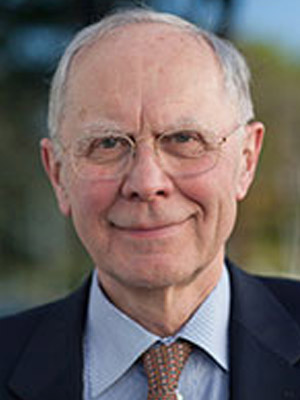
Jørn Dyeberg was awarded an honorary doctorate from UiT for his ground-breaking research on the importance of omega-3 fatty acids in health and disease. His research forms the basis for our current understanding of fish and fish products’ vital importance in our diet and in the treatment of disease. His work opened a whole new domain of research of relevance to the fields of medicine and fishery science. Dyerberg is among the world’s top researchers of fat metabolism and cardiovascular disease and has worked closely with many research groups at UiT. He has served as an opponent during thesis defenses and, together with professor Arne Nordøy, was the organizer of the international symposium “N-3 Fatty Acids in Health and Disease” in Tromsø in 1988.
“I am delighted to receive this honorary degree that confirms the ties I have had to the University of Tromsø for so many years,” wrote Jørn Dyeberg as a response to the news of his appointment.
During the 1970s, he traveled to Greenland with H.O. Bang to conduct research on Inuit eating habits. The Inuits had a large intake of fish and shellfish, and the study of their diet led to the discovery of the role of omega-3 fatty acids for health and disease. Dyerberg and Bang were the first to demonstrate that the low incidence of cardiovascular disease among the Inuit population could be caused by the high number of Omega-3 fatty acids in their blood. The results of this research created great interest in the biological effects of long-chain Omega-3 fatty acids of marine origin. Because of Jørn Dyerberg’s research results, many countries now recommend that we include more fish in our diets to ensure that the body gets enough omega-3 fatty acids.
(Sources: the UiT Archives, University of Copenhagen)

Torstein Inge Bertelsen was a Norwegian professor of medicine and eye specialist. He had an important role in the establishment of a university in Tromsø. In 1963, the Journal of the Norwegian Medical Asociation published Bertelsen’s article Where do Medical Doctors Come From and Where Do They Go? which was an extensive study of the correlation between someone’s place of birth, place of education and place of work. The results showed that there was, in fact, a great correlation between these factors and this became a central argument in the debate regarding the location of the country’s third medical education program. His study concluded that it would be reasonable to open a medical faculty in Northern Norway if it was desirable to improve the health services in the region. Bertelsen, who was born in Harstad, became a strong advocate for the establishment of UiT, which was enacted by Stortinget (the Norwegian parliament) in the spring of 1968. He also initiated the quota system for Sami language speaking students in the medical program. When he retired from being a professor, Bertilsen published the book They Created the Shortage of Medical Doctors. The book presents a historical overview of health politics, healthcare management and the medical faculty in Oslo, which, according to Bertilsen, aimed to prevent that more people were given the opportunity to become medical doctors.
“Thank you so much for your kind letter announcing my appointment of an honorary doctorate at the University of Tromsø. I joyfully accept this honor and will, of course, attend the commencement,” wrote Bertelsen in his response letter to UiT.
Torstein Bertelsen was also appointed an honorary member of the Sami Medical Association in 1984 and 1st class knight of The Royal Norwegian Order of Saint Olav in 1988.
(Sources: Fulsås, N. (1993) University of Tromsø 25 years, University of Tromsø, the UiT Archives, På Høyden (UiB))
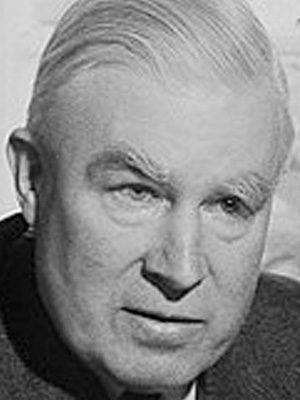
Georg Henrik von Wright was one of our time’s most important philosophers and critics of modern society. He was awarded an honorary doctorate for his contribution to important debates outside of his own academic field. His book Science and Reason caused a lot of attention by questioning our belief in science’s ability to answer the fundamental questions we ask ourselves as humans, and technology’s ability to solve our most important problems.
“Yesterday, upon my return from Tromsø, I received a letter with the announcement that the university wishes to honor me with a doctorate degree at its 25th anniversary celebration on 3 September 1993. I accept this gesture of respect with sincere appreciation,” wrote an excited von Wright in a telefax to the university director Harald Overvaag, when the announcement was official.
Georg Henrik von Wright received international recognition for his Ph.D. thesis The Logical Problem of Induction (1941). The problem of induction concerns the problem of support or justification of inductive methods. His research areas included logic, philosophy of science, ethics and philosophy of culture. His most important contribution to the field of logic and ethics is in the field of deontic logic, which is concerned with the normative concepts of permission, prohibition, obligation and right. Georg von Wright published many works in Swedish, Finnish, English and German, such as his book The Myth of Progress that questions the concept of progress. The significance and renown of his work were further highlighted as he assumed a professorship formerly held by the renowned philosopher Ludwig Wittgenstein (1889–1951). He later managed the literary heritage of Wittgenstein.
(Sources: the UiT Archive, Store norske leksikon)
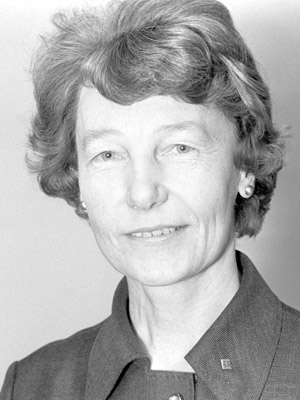
Ragnhild Andrine Sundby was a zoologist and environmentalist known for her research on insect pests. She was awarded an honorary doctorate for her great efforts to advance her academic field and its values by making it more accessible to the public. “She has promoted an action-oriented conservationism through her work with organizations, publishing popular science articles and through public speaking. She presents an ideology that we value at the University of Tromsø,” reads the argument for her appointment.
Ragnhild Sundby initiated the debate on pollution in Norway by introducing Rachel Carson’s book Silent Spring (1962) to the Norwegian public. She worked hard to ensure the protection and conservation of Norwegian nature. In 1959, she was granted a scholarship to travel to the University of California to work with Paul de Bach, the leading expert on biological pest control at that time. The work led to the publication of Competitive Displacement Between Ecological Homologues, which presented convincing examples from natural environments demonstrating that two or more species with identical ecological niches are unable to cohabit. This established that whichever species adapts best to its environment will outcompete the other species in the same area. Her book is among the few Norwegian works regularly cited in modern textbooks on ecology.
Ragnhild Sundby was the first female professor at the Norwegian University of Life Science. She was also a distinguished leader of the Norwegian Society for the Conservation of Nature, where she worked actively for a more balanced use of herbicides, pesticides and fertilizers in industrial agriculture. She was concerned with the environmental impact of the oil industry in the North Sea, energy policy, issues related to the hydroelectric development and acid rain.
(Sources: the UiT Archive, Norsk biografisk leksikon, Wikipedia)
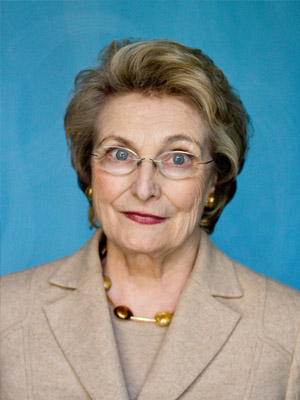
Helga Marie Hernes is a social scientist, politician and diplomat. She received her honorary doctorate for her contribution to developing the field of women's studies in Norway. Most of her works are in the field of political science. She is known for having developed the concept of a female-friendly state, so-called “state feminism.” Her scientific and editorial guidance and heartfelt support and encouragement for female researchers, some of whom were at UiT, have been invaluable for the completion and publishing of numerous research projects.
Helga Hernes was born in West-Prussia in 1938 and completed her Ph.D. in the USA in 1970. During the 1970s, Helga Hernes contributed considerably to the emerging field of women’s studies, which over the coming decades would become one of the strongest forces for a new orientation of the social sciences. Her most important works were published during the 1980s and focused on the relationship between the state and feminism. Her most famous works are The State: Women No Access? (1982) and Welfare State and Woman Power: Essays in State Feminism (1987). She was head of research at the Norwegian Research Council for Science and the Humanities in the department of women’s studies, where she oversaw the research of women’s studies in the social sciences. The most impressive result of her time in that role is the 18-volume work Women’s Living Conditions and Life-Courses. Helga Hernes has held many political duties and is known for chairing the Gender Equality Committee that prepared the first recommendation for gender quota as a political instrument.
(Sources: the UiT Archive, Norsk biografisk leksikon, Kjønnsforskning.no)
Parzival Copes was a Canadian economist with a particular interest in regional science, who specialized in fisheries economics and management. Copes was awarded an honorary doctorate for his great contribution to the international field of fishery science from a social science perspective and for his positive impact on the development of fishery research in economics and social sciences at the Norwegian College of Fishery Science (NFH) and the Department of Social Sciences (ISV) at UiT.
“I am most appreciative of the honor that the award of this degree would bestow. I will be very pleased to accept the degree and to be present for the award on the University´s Anniversary Day,” wrote Copes in a fax to Harald Overvaag, the university director at that time, in June 1993 when he was notified about the appointment.
Parzival Copes spent his academic career working on socioeconomic issues related to the development of fisheries and fishing communities. His research in Atlantic Canada has had great influence on similar research conducted in Norway and other countries. Copes enjoyed international recognition for his academic work within this field and received many awards. In 1992, he published his research The Resettlement of Fishing Communities in Newfoundland, which demonstrated the outcome of a balance between economic growth and resource management. Parzival Copes visited UiT on several occasions and many employees at NFH and ISV have stayed at Simon Fraser University, where he worked for several years until he retired in 1992.
(Sources: the UiT Archives, Simon Fraser University, Wikipedia)

Desmond Tutu ble utnevnt til æresdoktor ved UiT for sitt arbeid for ytringsfrihet og fredsarbeid, og mot rasisme. Utnevnelsen begrunnes med den betydning han har hatt for en demokratisering av Sør-Afrika, og må ses som et uttrykk for solidaritet mellom mennesker på den nordlige og den sørlige halvkule.
Desmond Tutu er kirkeleder og aktivist og ble verdenskjent på 1980-tallet for sin motstand mot apartheid (politisk ideologi og et system for rasebasert segregering og adskillelse). Samtidig var det også mye aktivitet ved UiT mot apartheid, og universitetet var med på den akademiske boikotten av Sør-Afrika, i tillegg til å erklære hele universitetet som antirasistisk sone. Etter at regimet ble styrta i 1994 fikk UiT til et akademisk samarbeid med landet.
Desmond Tutu har også ledet sannhets- og forsoningskommisjonen i sitt hjemland (1996–99). Det var sørafrikanernes måte å gjenskape rettferdigheten i et herjet land, og innebar at de som hadde begått overgrep under apartheidregimet i full offentlighet måtte fortelle sannheten om det som hadde skjedd. Om drap, tortur, bortføringer og voldtekter. Det var en forutsetning for at landet kunne gi den enkelte amnesti.
– Uten at den hele og fulle sannhet kom på bordet ville ofrene for undertrykkelsen bli gjort til ofre på nytt. Å si unnskyld er noe av det vanskeligste som fins. Undertrykkerne måtte fortelle om det de hadde vært med på og be om unnskyldning på TV. For noen av dem var det kanskje første gang deres egen familie fikk høre om hva de hadde gjort. Selv de verste av oss er Guds barn og har mulighet til å forandre seg, forklarte Tutu, da han i september 2004 besøkte UiT i forbindelse med åpninga av det akademisk året og avdukinga av bysten av Mahatma Gandhi utenfor Senter for fredsstudier. Da var det akkurat ti år siden han ble utnevnt til æresdoktor.
Desmond Tutu mottok også Nobels fredspris i 1984.
(Kilder: UiTs arkiv, uit.no)

Carsten Smith was appointed an honorary doctorate from UiT when the semester opened on 1 September 1995. He was awarded the degree for his work to strengthen the Sami people’s rights and for his strong involvement in political issues related to the Sami people. UiT also highlighted his chairmanship of the Sami Rights Committee as an important basis for the appointment. Smith was a lawyer and judge and participated in debates regarding political rights. His efforts influenced the development of law and legal institutions in Norway. The dispute regarding the hydroelectric power station in Alta in the 1970s and 80s opened Smith’s eyes to the Sami people’s rights and he developed a great interest in their cause. He was the first chairman of the Sami Rights Committee, which worked towards the establishment of the Sami Parliament of Norway and a new constitutional provision regarding the protection of Sami culture. One of his powerful and thought-provoking statements is that Norway is a state built on the territory of two peoples; the Norwegian and the Sami.
When the Department of Law Studies opened in 1987, Sami rights was one of the mandatory subjects of the vocational studies. On the opening ceremony of the department, Carsten Smith expressed that legal practitioners had not fully understood their responsibility to study Sami rights; “It is in light of this that you should judge the important decision we have made here in Tromsø to establish Sami rights as a separate field of law included as a mandatory part of the Northern Norwegian law program.”
Smith was also chairman of an expert team which proposed a Nordic Sami Convention in 2005. In 2006, he became chairman of the Inshore Fishing Committee for Finnmark, which was established to consider the sea-fishing rights of the inhabitants of Finnmark.
(Sources: the UiT Archives, Store norske leksikon, Ravna, Ø. (2012) Samerett og samiske rettigheter i Norge. I: Henriksen, T. og Ravna, Ø. (red) Juss i nord: Hav, fisk og urfolk, Gyldendal, s. 148-173)
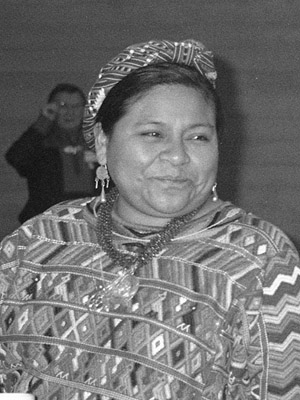
Rigoberta Menchú Tum was born to an indigenous family in Guatemala. She was appointed an honorary doctorate from UiT in 1996 for her ceaseless work for indigenous rights, human rights and for being a spokeswoman for the world’s oppressed peoples. It is not a coincidence that UiT wished to honor her; UiT holds a specific obligation and privilege to support the Sami language, education, research and culture, and thus, has a special involvement in topics related to indigenous people.
Rigoberta Menchú Tum received the honorary doctorate on behalf of Guatemala’s women, who hunger for knowledge, but also have something to teach us in return;
“Much of our knowledge is in the process of being discovered but one day we will show something to the world,” she said when she received the diploma and added that the honorary doctorate also belonged to the Sami people.
Rigoberta Menchú was born to a poor indigenous family of K'iche' Maya descent in a small mountain village. She grew up being discriminated against her minority background and she decided to dedicate her life to publicizing the rights of Guatemala's indigenous feminists and to promoting social reforms in her country. Both her parents and her brother were murdered for their efforts to promote the rights of the indigenous people. A second brother died from malnutrition and a third brother from being poisoned by pesticides. Menchú, herself, was forced into exile and escaped to Mexico in 1981, where she continued to fight for the rights of the indigenous farmers in her home country. Despite her tragic background, she remains a symbol of the non-violent movement against oppression.
Menchú Tum learned how to read and write at the age of 20, and in spite of having a very short education, she was appointed ten honorary doctorates. Menchú Tum was also awarded the Nobel Peace Prize in 1992.
(Sources: the UiT Archives, Tromsøflaket)
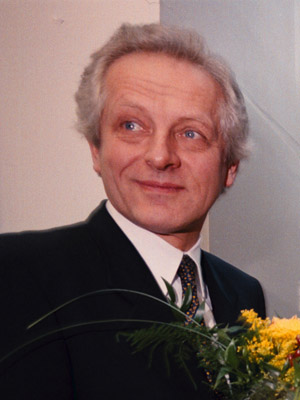
William Nygård was awarded an honorary doctorate in the spring of 1998 for being an uncompromising defender of freedom of speech. Nygård was head of the Norwegian publishing house Aschehoug for 36 years (1974-2010). He was brought into the limelight after his attempted assassination in October 1993, when he was shot and seriously injured outside his home in Oslo. Although his perpetrator was never caught, everyone assumed the incident was linked to his role in publishing Salman Rushdie's novel The Satanic Verses in 1989.
Tove Bull, UiT’s rector at that time, said William Nygård’s appointment was important to the university because its very existence depends on the freedom of thought and speech.
“All research must be based on the permission to think freely about one's research and its results. Nygård and Rushdie both paid a price for their freedom of speech, which shows that freedom of speech cannot be taken for granted, but must be fought for and defended,” she said.
(Source: Tromsøflaket)

Salman Rushdie is a British Indian writer most known for his novel The Satanic Verses about an Indian movie star, who in his dreams reexperiences important moments of the prophet Muhammad’s life. On February 14, 1987, Ayatollah Khomeini, the supreme leader of Iran, issued a fatwa against Rushdie calling for his assassination for writing a novel blasphemous against Islam. The fatwa sparked violence around the world, with book burnings and firebombs directed at bookshops that sold the novel. Several people connected to the translation or publication of the novel were attacked, injured or killed. William Nygaard, Salman Rushdie’s Norwegian publisher, was one of the injured.
“The fight for the freedom of speech begins the moment someone says something you dislike or disagree with. And it does not end there. We find many things, written or uttered, to be repulsive but we cannot thereby forbid or censor it. It is better to keep it an object of discussion because it is impossible to unthink what has already been thought,” said Rushdie in his speech of gratitude when he visited UiT in the spring of 1998.
Rector Tove Bull pointed out that Rushdie's cause is also the university’s cause, for research and education cannot proceed without the underlying element of freedom of speech.
(Source: Tromsøflaket)
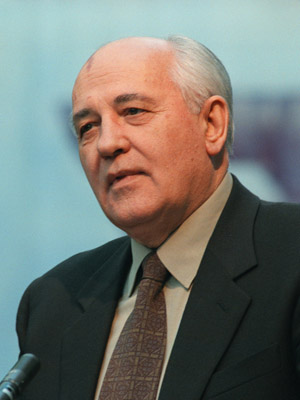
Mikhail Sergejevitsj Gorbatsjov was appointed an honorary doctorate for his ground-breaking work for democracy and international detente, with emphasis on its effect on the High North. His appointment directed attention to the international cooperation in the Barents Region and stimulated an interest for research collaboration with Russia.
“People who have had the courage to make their own way need support and encouragement. I am touched and extremely grateful,” said Mikhail Gorbatsjov when he received the honorary doctorate at UiT, Thursday May 14, 1998.
As leader of the Soviet Union, his efforts laid the foundation for the Cold War detente. In October 1987, Gorbatsjov visited Murmansk where he held his great, famous speech on international collaboration in the High North and Arctic area. His speech can be seen as an important preparation to the idea of regional collaboration in the north.
“He has influenced our enterprise and academic profile to a much greater extent than most of us, and even he himself, is aware of,” said Tove Bull, rector at that time, in her speech to Gorbatsjov. She pointed out that open borders between Norway and Russia give researchers access to new research materials and research areas. A closer collaboration also leads to culture contact and mutual understanding, which were important premises for the detente process that happened during the 1990s.
(Sources: the UiT Archives, Tromsøflaket)
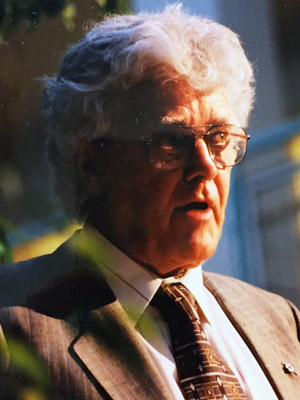
Robert Paine was awarded an honorary doctorate in recognition of his outstanding research on Sami living conditions during more than half a century. Paine is a central character in the field of social anthropology and his efforts spread knowledge about the Sami people from a social scientific perspective to the international community. Robert Paine commenced his studies in social anthropology at the University of Oxford. He was encouraged to study the minority people of the far north and in the beginning of the 1950s, he did his first fieldwork in Revsbotn in the West-Finnmark area. In 1957, he published his first research on the coastal Sami people; Coast Lapp Society I. Originally, he wanted to do fieldwork among the Sami reindeer herders, but he was not accepted into their community at first. Later, however, he developed an extensive network within the reindeer herding community in Finnmark when he worked as a farmhand through the cycle of a whole year. In 1965, he published Coast Lapp Society II, which documented the changes in the coastal Sami’s living circumstances in the post-war period. Working for the Sami reindeer herders resulted in a number of articles from the 1960’s and onwards. His interest and knowledge about Sami living conditions, and particularly about reindeer herding, made him strongly involved in the Alta controversy at the end of the 1970’s. He served as an expert witness for the reindeer husbandry when the Alta hydropower development scheme was tried before the Supreme Court and he wrote the article Dam a River, Damn a People? (1982). He visited the social anthropological community at the University of Tromsø on several occasions where he was a great source of inspiration. He was also hired as an adjunct professor for a short period. Robert Paine also had close and lasting contacts in the academic community of Sami studies and followed the development in their field with great interest.
(Sources: the UiT Archives, Tromsøflaket, uit.no (obituary by Trond Thuen))
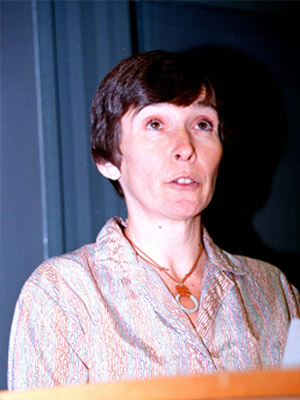
Suzanne Romaine was appointed an honorary doctorate at the anniversary party in 1998 but was unfortunately unable to attend the presentation. The arguments for her appointment stated that Romaine is one of our time's most outstanding linguists. Her scientific contribution is extensive and varied and she has been an important spokeswoman for minority languages and research on such languages. In addition, Suzanne Romaine has done ground-breaking research on pidgin language and multilingualism and is one of the leading theorists in the field of sociolinguistics. These research fields are of special significance to our own region and to our university’s language research.
Suzanne Romaine was particularly interested in Norway because it is considered to be one of the most gender equal countries in the world. She paid close attention to language and gender issues and research done in this field at the University of Tromsø. Romaine visited Tromsø on numerous occasions and worked with many researchers at UiT. She was Merton Professor of English Language at the University of Oxford from 1984 until she retired in 2014.
(Sources: the UiT Archives, Tromsøflaket)

Dalai Lama, the Tibetan people’s political and spiritual leader, was awarded an honorary doctorate at UiT on December 5, 2001 before a complete audience in the MH-building. He was appointed for his ceaseless strive for world peace and tolerance and his struggle for the Tibetan people’s rights through dialog and non-violence.
In the fall of 1950, the Chinese army invaded Tibet and, after suppressing sporadic resistance from the Tibetan army, it reached the capital Lhasa in 1951. An agreement was made between the Tibetan and the Chinese government. This was the first treaty between the two countries since 821. However, the disturbances continued and Dalai Lama was forced to live in exile in India due to the tension that occurred after the riots started against the Chinese in 1959.
At the commencement ceremony, Dalai Lama expressed his strong belief in education as a means against the violence that pervades our society today. “We have to emphasize non-violence and dialog in all levels of education, from day-care to university. The students’ immediate reaction to conflict should be dialog,” said Dalai Lama, and joked about receiving the university’s highest degree without undergoing any hard work or study.
Dalai Lama was awarded the Nobel Peace Prize in 1989.
(Sources: uit.no, Store Norske leksikon)
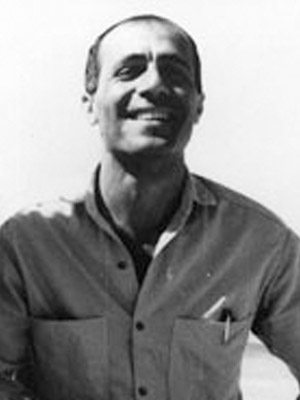
The nuclear technician Mordechai Vanunu was appointed an honorary doctorate on 15 May 2001 for the courage he demonstrated when revealing the production of nuclear weapons in Israel. By appointing him, UiT involved itself in the debate on nuclear weapons, set an example in the context of human rights, and engaged itself in the peace work in the Middle East. The appointment was also relevant to the university’s plan to establish peace studies.
Vanunu was a Moroccan Jew and moved with his family to Israel in 1963. After three years of military service from 1971-74, he studied physics at the University of Tel Aviv before he, in the fall of 1976, started working as a nuclear technician at Negev Nuclear Research Centre near the city of Dimona. According to military experts, this institution produced nuclear weapons. He stopped working there in 1985 and in the fall of 1986, he leaked to British newspapers that Israel had a secret nuclear arsenal. Right after, he was abducted from Rome, where he was staying, by Mossad agents. He was taken to Israel and before a closed court, condemned to 18 years in prison for treason. He spent 11 of these years in isolation. In April 2004, he was released with strict communication and travel restrictions. He was arrested the same year for breaking these restrictions and was put under house arrest.
Vanunu’s actions are rooted in the tradition of civil disobedience as he leaked information about Israel’s secret nuclear arsenal out of moral convictions. His actions and the attention they caused have become a symbol of loyalty dilemmas and an individual’s responsibility.
(Source: uit.no)
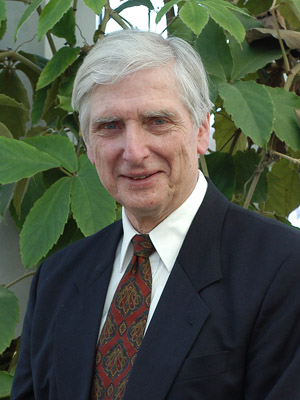
One of UiT’s first professors, Ottar Brox (1932) was awarded an honorary doctorate for his significance to the University of Tromsø. He was hired from 1972 to 1984 but his professorship was interrupted due to a four-year period of service in Stortinget (the Norwegian Parliament). Later, he became the research director at The Norwegian Institute for Urban and Regional Research in Oslo. During much of this period he was still employed by UiT, only as an adjunct professor. Brox is one of Norway’s leading and most proliferate social scientists and he continues to be a source of inspiration for social scientists interested in regional development. Ottar Bronx’s work had an imense impact on the field of social science and the debate on Northern Norway. His first book What Happens in Northern Norway? was published as early as the 1960s. He used economic and anthropological theory to understand local communities in Northern Norway. By studying the relationship between the local way of living and regional and national restrictions, he managed to develop a new theoretical framework and bring research to the political arena. Brox’s work also contributed significantly to the development of comparative research, for example he compared industry and commerce in North Atlantic coastal communities to that of other countries. Ottar Brox published far more than the average scholar and his work is still part of the curriculum at many universities and colleges. He is now retired but is still very active. He is in the process of writing a follow-up to his earlier books on Northern Norway.
Ottar Brox is considered one of the pioneers behind the University of Tromsø.
(Sources: uit.no)
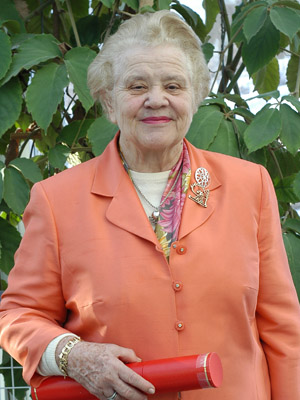
The Greek professor Erica Irene A. Daes dedicated much of her life to promoting human rights and was appointed an honorary doctorate from UiT for promoting the cause of the world’s indigenous people. Daes was an academic, diplomat and United Nations expert with a Juris doctor degree with specialization in civil law. She worked for many years as a lawyer in her home-country and was a supreme court lawyer from 1952-1990. From 1969, she served as a Greek diplomat. Her retirement did not put a stop to her high level of activity and she continued to work for the rights of indigenous peoples. She represented Greece in the UN Commission on Human Rights and the UN General Assembly for several years and had many commitments and responsibilities in the UN system. She is best known for her almost 20 years of work with the United Nations Working Group on Indigenous Populations, which she chaired for an extended period of time. She was also one of the driving forces behind the UN Declaration on the Rights of Indigenous Peoples. As part of her work for the UN, Erica I. E. Daes visited many indigenous peoples around the world, including the Sami. She worked with the Sami Council and the Sami parliaments of Norway, Sweden and Finland. She has also worked with academics at UiT.
(source: uit.no)
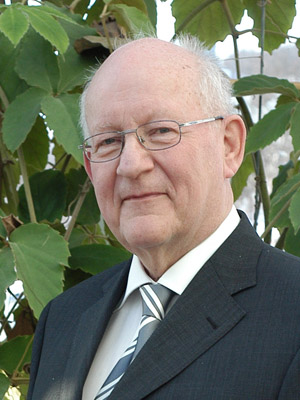
The Norwegian professor Tor Hagfors was appointed an honorary doctorate for his great scientific contribution in the field of astronomy. His work is significant to UiT because he was the first director of the EISCAT international organization, hosted by Norway. Hagfors was responsible for the construction and early operation of the EISCAT facilities in Tromsø, Kiruna and Sodankylä. During the 1950’s and 60’s, he studied the ionosphere through radar experiments. He worked with the theory of incoherent scattering and his publications are widely known internationally. His work became the foundation for a new field of science in astronomy; radar astronomy. Standford University in the USA, where he worked for a period, established a separate department for radar astronomy. The department has contributed significantly to the exploration of our solar system. As a symbol of his international recognition, an asteroid was named “Hagfors” in his honor. He held many prominent positions nationally and internationally; for example, he was the director of the National Astronomy and Ionosphere Centre in Ithaca in the USA and he was the director at the Max-Planck-Institute for Aeronomy in Germany until his retirement in the year 2000. Hagfors published more than 100 scientific papers on radar studies of the ionosphere, the moon, the rings of Saturn, and Venus. His studies of the moon included a mapping of the lunar surface and was an important contribution in preparation for the moon landings in the 1970s. Even as an emeritus, he offered important contributions to ionospheric research in Norway, Japan and Great Britain, and to the study of planetary and comet surfaces through spacecraft.
(Source: uit.no)
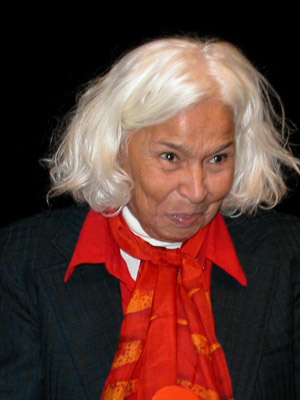
The Egyptian writer and medical doctor Nawal el Saadawi was appointed an honorary doctorate for her struggle for women’s liberation. She is often described as the Arabic world’s most famous woman. She had a long and varied career as director of the Ministry of Public Health in Egypt, founder of magazines, chief editor, public speaker, researcher and, not least, as an author. Women’s issues were always important to Nawal el Saadawi and she was among the first to work against female circumcision. She demonstrated a unique ability and great courage by challenging men’s and Islam’s execution of power against women in Egypt. As a writer and a cultural figure, she is creative in her way of pushing boundaries. She has a great talent for combining high-quality fiction with a strong underlying message. Although she was relieved of her position as health minister, her work was censured, she spent periods in prison, lived in exile for five years, was threatened with forced divorce, she was unwavering in her promotion of women’s position in Islam. Nawal el Saadawi visited Tromsø on two occasions in the late 1970’s as well as during the Women’s World Conference in 1999.
(Source: uit.no)
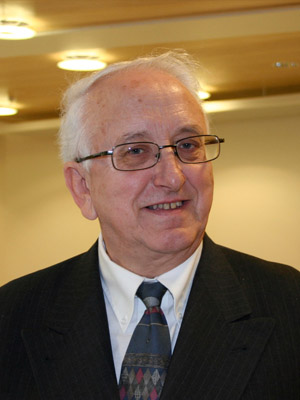
Professor Johan Peder Olsen was appointed an honorary doctorate for his close affiliation to the University of Tromsø and for his central role in building the academic community of political science. Olsen has been an advisor, guest lecturer, opponent during Ph.D. defenses, and has been part of the Department of Political Science from the time when it had just one staff member until today’s extensive enterprise. Olsen was born in Tromsø in 1939 and is one of the few Norwegian political scientists to gain an international reputation. He was one of the head researchers in the first government-funded study on power and democracy. He was also a key figure in the establishment of the Norwegian Research Council of Organization and Management in Bergen. He has been a member of a variety of network groups and executive boards. Johan P. Olsen became a professor at the young age of 33 and was a professor at the University of Bergen for 21 years. He was also a professor at the University of Oslo. He was research director at ARENA -the Research Council of Norway’s program for Advanced Research on the Europeanization of the Nation State.
(Source: uit.no)
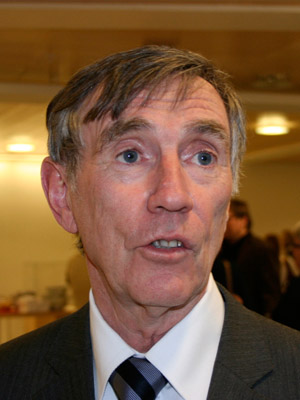
Jan Raa was a professor at the University of Tromsø from 1972-1987 and participated in the building of the university in its early stages. He was awarded an honorary doctorate for his contribution to establishing the academic fields of biology and fisheries science and for his outstanding involvement as a lecturer and researcher at UiT. He had a unique talent for taking basic research and discovering its potential for practical application, commercial exploitation and creation of wealth. Raa was central to the creation of the basic marine research program at UiT and to the continuation of fisheries research, which led to the present Nofima, one of the largest institutes for applied research within the fields of fisheries, aquaculture and food research in Europe. Although his efforts quickly gave UiT a relevant profile in the region, he is rather humble in his own characterization:
“I was lucky to be approached by such fantastic, talented students. If I have contributed in any way it must be by educating candidates who have made a difference to the region and the industry. I am very grateful for the opportunity the university has given me to develop myself, even though I am such a scatterbrain. It has been a continuation of happiness. I can't be sure, but I don’t think I would have gotten the same opportunity today,” said Raa when his appointment was official.
Raa is one of the leading academic entrepreneurs in Tromsø; In 1984, he developed the company Biotec (the present Biotec Pharmacon) for producing flying squid, where he was research director for a long period; In 1987, he established Norfico for research on aquaculture; in 1992, he established Nicanor for export to Nicaragua and in 2002, he established Calanus AS for exploiting Calanus. Jan Raa was part of the interdisciplinary team that developed the Hitra-vaccine, the UiT product-development that has given the highest socio-economic profit.
In 2010, Raa was decorated as a Commander of the Royal Norwegian Order of St. Olav for his contribution to research and development in the field of marine biology. “Raa’s innovative contributions have modernized the fisheries and aquaculture industry and given it a platform for further development,” read the arguments for his appointment.
(Sources: uit.no, Wikipedia, biologist and pioneer Sylvia Labugt)
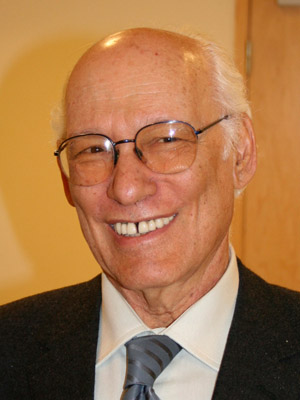
Rodolfo Stavenhagen was awarded an honorary doctorate because UiT believed he embodied a perfect combination of high academic standards and personal involvement in society. Stavenhagen published important studies, in his time, on indigenous peoples, indigenous people’s rights and human rights. He was a professor of sociology and social anthropology at the National Autonomous University of Mexico and taught as a visiting professor at several universities in the USA, Europa and South America. His efforts as the United Nations first special rapporteur on the situation of human rights and fundamental freedoms of indigenous peoples were invaluable. His combination of professional objectivity and personal engagement set a new standard and he gained respect even from nations who did not share his viewpoints. He had a close relationship with UiT, especially the Center for Sami Studies. He also worked closely with the Sami Parliament and several Sami organizations. Stavenhagen was the main introductory speaker at the annual UiT Forum Conference in Octobre 2003. He also visited Tromsø in March 2015 for a conference on the Finnmark Act.
(Source: uit.no)

Harward University Professor Steven Pinker is one of the most distinguished cognitive psychologists and linguists. His research focuses on language and the brain; from grammar to mental imagery of the brain’s language processing. He was appointed an honorary doctorate from UiT for his impressive scientific achievements. He has published a large number of papers in the most esteemed scientific publication channels and has authored five books on popular science. Pinker’s research has led to significant advances in his field, for which he has received several awards. Professor Pinker was suggested as a candidate for the honorary doctorate by two academic communities at UiT; CASTL at the Faculty of Humanities and the Department of Psychology at the Faculty of Social Sciences. “He is one of the world’s most prominent intellectuals and compares to Richard Dawkins in biology, Steven Hawkins in physics or Carl Sagan in astronomy,” wrote Curt Rice, director of CASTL at that time, in his description of Pinker. Time Magazine has included Steven Pinker in their list of the100 most influential people in the world today and Harward University included him in their list of 100 most influential alumni.
(Source: uit.no)
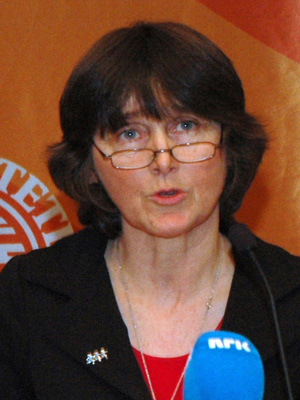
Barbra Neis is a professor at the Memorial University of Newfoundland in Canada. She is a prolific scientist who has demonstrated a great personal engagement with society. She has devoted much of her career to outstanding research on woman and gender, particularly men and women’s occupational health and living conditions in the Newfoundland coastal communities. Thus, she has contributed significantly to research on the Far North of the American continent.
Her research focuses on the area where social science touches natural science and over the last years, where social science touches medical science. She has used feminist theory in relation to globalization theory, local community theory and the more general theory of sociology, which is her original academic field. For the past 20 years, Barbara Neis has worked with employees at several of the UiT faculties and was suggested as a candidate for the honorary doctorate by the Center for Women’s and Gender Research.
(Source: uit.no)

Ole Henrik Magga was an adjunct professor of Sami language at UiT for many years. He was awarded an honorary doctorate for his scientific research and for his work on several language boards, which helped develop and strengthen the Sami language’s position in the Norwegian and Sami society.
“It has been a pleasure working with the University of Tromsø. I started in 1977 and served as a lecturer, examiner and advisor,” said Ole Henrik Magga when his appointment was known.
In 1998, Magga became the first president of the Sami Parliament of Norway. He served for two four-year-periods. Dialog was an important factor in his political career and his efforts strengthened the Sami Parliament as a political institution. He promoted the cause of indigenous peoples in other parts of the world as well and was therefore elected as the first chairman of the United Nations Permanent Forum on Indigenous Issues.
Ole Henrik Magga was suggested as a candidate for the honorary doctorate by the Center for Sami Studies. Head of administration Else Grete Broderstad was very pleased with his appointment. “Being a highly respected academic and our foremost indigenous leader, Magga is a great source of inspiration for our students and researchers. His extensive work with indigenous people coincides with the university’s priority areas and emphasis on indigenous related topics,” she said when his appointment was official.
(Source: uit.no)
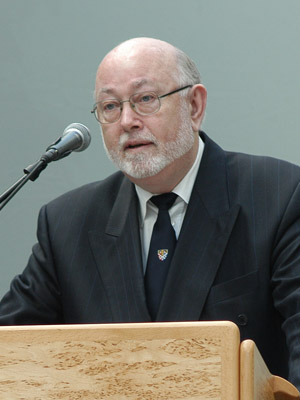
Professor Narve Bjørgo was appointed an honorary doctorate for his great significance to UiT. Not only did he serve as rector from 1985-89, he also helped build the university’s department of history. He was among the first to conduct research on Northern Norwegian history.
“When I arrived from Bergen in the 1970s, the University of Tromsø was an institution in the middle of a hectic building process. We were only two lecturers in the field of history and our academic and administrative work was very demanding, especially the first year. But it was also very exciting. We were given challenges and opportunities we could only dream of had we remained at our original universities. My family and I had only planned to stay for one year in Tromsø but we ended up living here for 20 years. Those were the best years of my career so when I am granted such an honor, I am deeply touched and very happy,” said Bjørgo when his appointment was made official.
Today, he is a reputable historian with a considerable scientific production to show for. Narve Bjørgo was also strongly engaged in the University of Tromsø as a political project and he believed the university had to be anchored in its local society and be of relevance to its region. Bjørgo was also the first chairman of the NOKUT board from 2003. He was suggested as a candidate for an honorary doctorate by the university library and the Department of History at the Institute for Social Sciences.
(Source: uit.no)
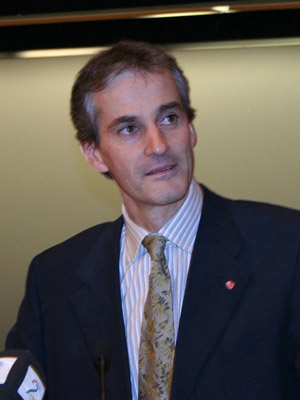
In April 2011, the UiT university board decided to award Norwegian minister of foreign affairs Jonas Gahr Støre and Russian minister of foreign affairs Sergei Lavrov an honorary doctorate for their many years of effort to reach an agreement regarding the maritime boundary between Norway and Russia. “Støre and Lavrov placed the High North on the international map through strategic efforts. The political focus on the northern regions has improved the public opinion of Northern Norway,” read the arguments for their appointment. Støre was unable to receive the diploma for his doctorate until 2013. “I find it amusing that after becoming minister of health and care services, my efforts as foreign minister would earn me a doctorate. I am delighted and honored by the attention you have brought to my work here today. When forming the political strategy for developing the High North, the University of Tromsø always remained a natural focal point,” said Jonas Gahr Støre when he received the diploma of his honorary doctorate.
(Source: uit.no)
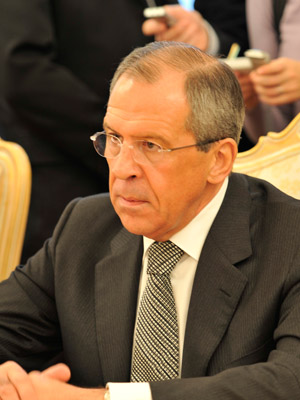
In April 2011, the UiT university board decided to award Norwegian minister of foreign affairs Jonas Gahr Støre and Russian minister of foreign affairs Sergei Lavrov an honorary doctorate for their many years of effort to reach an agreement regarding the maritime boundary between Norway and Russia. “Støre and Lavrov placed the High North on the international map through strategic efforts. The political focus on the northern regions has improved the public opinion of Northern Norway,” read the arguments for their appointment. The Russian minister of foreign affairs was unable to attend the presentation of his honorary doctorate and Russian ambassador Viatsjeslav A. Pavlovskij received the diploma on his behalf in April 2013.
(Kilde: uit.no)
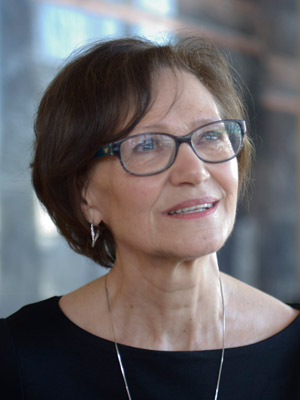
Laila Stien was granted an honorary doctorate for her authorship and for her translation from the Sami language to Norwegian. Much of her literary work is embedded with elements from the Northern Norwegian and Sami culture. She has also translated and interpreted Sami literature, mostly poetry, and has won many awards for her authorship. Laila Stien is primarily known as a short-story-writer but has also written poetry and children’s books. She is a guest lecturer at the writing workshops at UiT.
Her first translation of Sami literature was based on a request to translate a collection of poems by Synnøve Persen in 1982.
“I was skeptical at first because I did not think I would manage. Translating fiction is not just about conveying a meaning, it is just as much about recreating a tone in a different language. Sound and atmosphere are central. But I succeeded, so I continued to translate between my own writing projects and I have had the pleasure of contributing to Sami literature being accessible to more people,” said Laila Stien when her appointment was official.
(Source: uit.no)
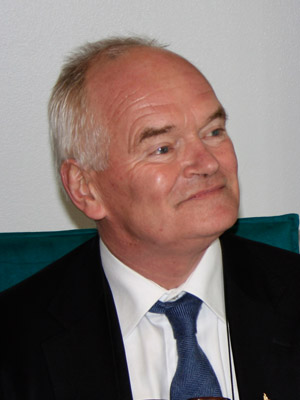
Trond Mohn gained his degree in economics at the University of Mannheim in 1970. In 2015, he was awarded an honorary doctorate for his numerous donations to research, medicine and sports in Norway. He is a social developer and a great source of inspiration to everyone.
In 2014, the businessman donated 300 million NOK as unrestricted funds for research to UiT. This is the largest single donation received by the university to date. In 2007, he made another donation of 100 million NOK to UiT. The fund is managed by Tromsø Research Foundation (TFS) which aims to support and fund long-term, basic research and recruitment in benefit of research at UiT. The foundation may also grant funds for similar purposes at other institutions when they collaborate with UiT. So far, the fund has supported more than 100 research projects.
“Research is our future. The Norwegian people appreciate a decentralized way of living and it is, therefore, important to increase competence in the northern region,” said Mohn as a comment to his donation to UiT. Mohn prefers to give donations without earmarks as he believes the researchers are better suited to manage the funds.
(Source: uit.no)
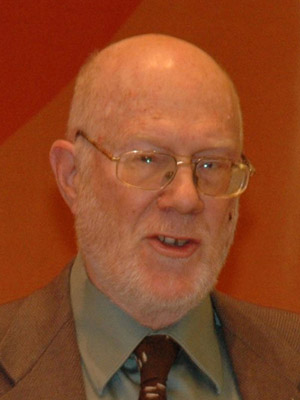
Professor emeritus and political scientist Oran R. Young at the University of California came up with the saying “Age of the Arctic” in 1986. He is an expert on scientific activity in the Arctic and Arctic cooperation, and with more than 30 years of research, he is considered a pioneer in his field. In 2015, he was appointed an honorary doctorate from UiT for his scientific contribution to Arctic cooperation. He has promoted research with relevance to the development of the Arctic and was the founding chairman of the Arctic Council.
Oran R. Young has authored several books and published many research reports on international governance and cooperation in the Arctic.
“This is a great honor. In many ways, Tromsø has become the capital of the Arctic and UiT has earned the name “the Arctic University of Norway”. I have had a long and good relationship with the university and I am grateful when this is recognized through my honorary doctorate,” said Young when the appointment was announced to him.
(Source: uit.no)
